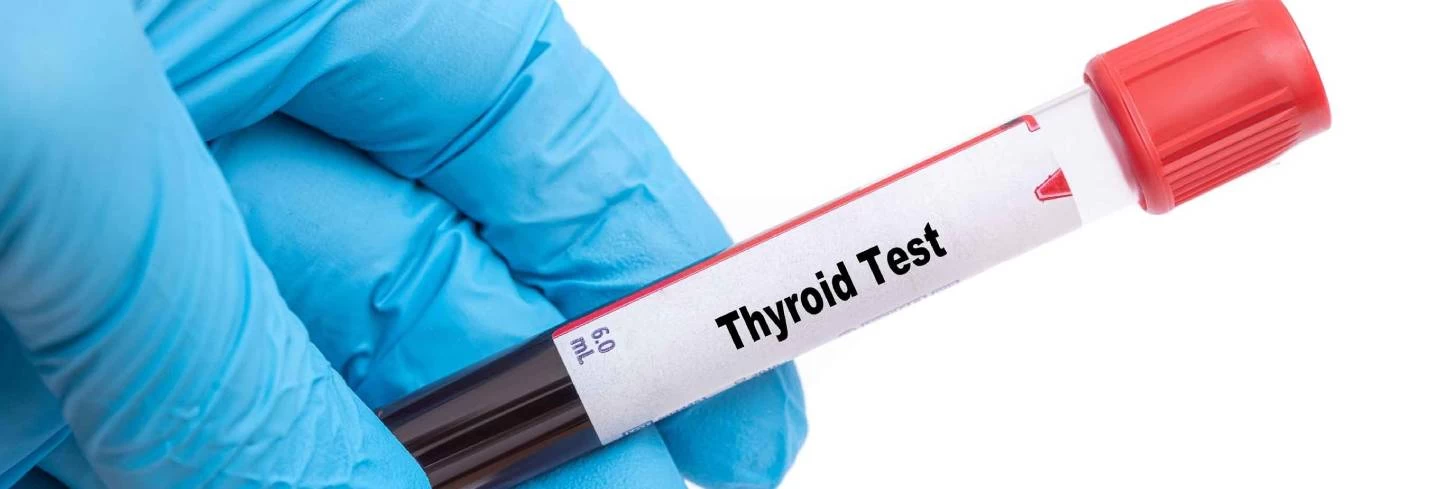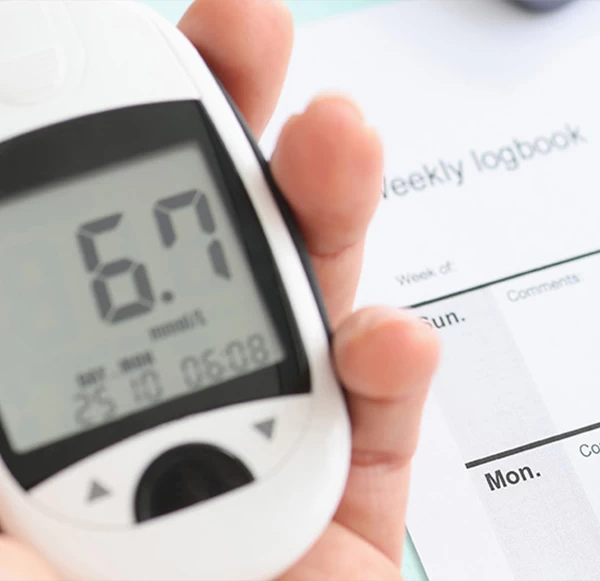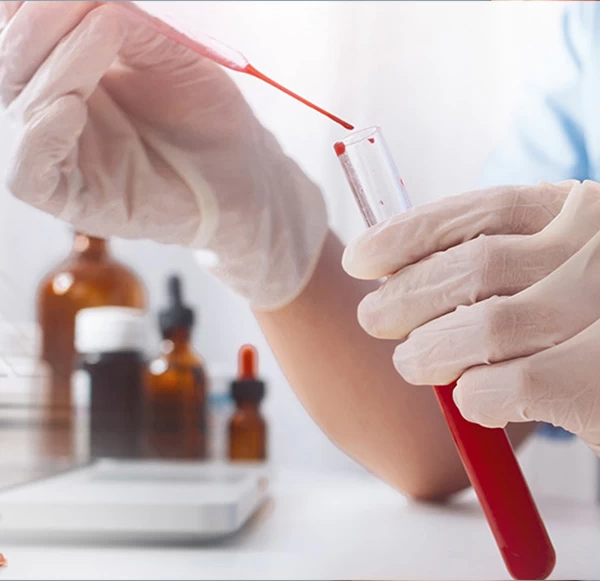- Email Us

The thyroid gland might be small but has a large impact on your health. Situated at the front of your neck, this butterfly-shaped gland regulates your metabolism, energy levels, and even your mood.
Thyroid problems often go undetected in India. A major study found that nearly one in ten adults has hypothyroidism, many without knowing it.
If you have been feeling tired for no reason, gaining or losing weight, or noticing changes in your skin or menstrual cycle, your thyroid might be involved. And if you have been searching for a thyroid test near me, this guide will help you understand what could be happening and what to do about it.
The most common reason is a hormone imbalance, when the thyroid produces too little or too much hormone. This imbalance affects everything from digestion to heart rate.
Your body slows down. You may feel tired all the time, put on weight, or feel unusually cold.
Common reasons include:
Things speed up. You might lose weight without trying, feel anxious, or have difficulty sleeping.
Common causes include:
Autoimmune conditions are a leading cause in both cases.
Thyroid symptoms can be vague or develop gradually. Here are some signs to look out for:
You may also notice:
These symptoms are often more noticeable in hypothyroidism.
Yes. If the thyroid gland becomes enlarged or develops nodules, it may cause:
If you notice these symptoms, speak to your doctor and get tested.
Thyroid conditions typically fall into five categories:
A thyroid function test , a simple blood test is the most reliable method. It checks hormone levels and helps doctors identify imbalances.
Common tests include:
Mahajan Imaging & Labs offers thyroid testing at home. A qualified technician visits your home to collect the sample. Results are quick, reliable, and shared digitally.
For hypothyroidism:
For hyperthyroidism:
For goiter or nodules:
| Topic | Summary |
| What causes thyroid problems | Often due to autoimmune issues, iodine imbalance, or medication side effects |
| Hypothyroidism causes | Hashimoto’s disease, iodine deficiency, radiation therapy |
| Common symptoms | Fatigue, weight changes, mood shifts, hair loss, swelling |
| Can thyroid cause throat pain | Yes, especially with goiter or nodules |
| Can thyroid affect swallowing | Yes, due to pressure from an enlarged thyroid |
| Types of thyroid conditions | Hypothyroidism, hyperthyroidism, goiter, nodules, cancer |
| Thyroid test near me | Available with home collection via Mahajan Imaging & Labs |
Taking care of your thyroid health is essential for your overall well-being. If you’re experiencing any symptoms or simply want peace of mind, don’t wait—early testing can make all the difference. Mahajan Imaging offers convenient home sample collection by qualified technicians across Delhi NCR. Your reports are fast, NABL-accredited and securely delivered.
Early testing helps catch thyroid issues before symptoms worsen. Book your thyroid test with Mahajan Imaging & Labs today.
TSH, Free T3, and Free T4 are the core blood tests used to evaluate thyroid function.
TSH is a hormone produced by the pituitary gland. It tells your thyroid how much hormone to make.
Yes. Water is safe. Avoid tea, coffee, or milk if you have been advised to fast.
Thyroid disorders are not usually curable, but they are highly manageable with lifelong medication and monitoring.
Yes. They offer a full view of thyroid hormone levels, especially when TSH results are unclear.
Stand in front of a mirror, tilt your head back and swallow. Look at your neck for swelling. If anything looks unusual, see a doctor.
Stage 3 typically refers to thyroid cancer that has spread. It does not apply to hypo or hyperthyroidism.
In many cases, TSH and T4 are enough. T3 is usually added if hyperthyroidism is suspected or TSH is abnormal.




